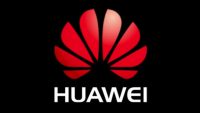Huawei Technologies challenged the constitutionality of the National Defense Authorization Act’s provision that restricts federal agencies from buying any product from the Chinese telecom, its rival ZTE or third parties, such as contractors. One of Huawei’s chairmen, Guo Ping, stated that, in passing this law, “Congress acted unconstitutionally as judge, jury and executioner.” Huawei also opened a Cyber Security Transparency center in Brussels to allay suspicions that it is involved in espionage for China.
The Wall Street Journal reports that, “Huawei filed its suit late Wednesday in the Eastern District of Texas, which includes its Plano-based American headquarters,” stating its belief that the bill targets it with an unconstitutional “bill of attainder,” by which “a person or entity is found guilty of a crime via an act of legislation.” Huawei’s suit also said “the law violates its right to due process and is a violation of the separation of powers between Congress and other branches of government.”

With this law, U.S. officials hoped to slow down the rise of Chinese influence in 5G networks of American allies, based on the belief that Huawei “could use its equipment to spy for Beijing.”
Huawei’s Ren Zhengfei, who founded the company in 1987, said he would not comply with any order by the Chinese government to spy; Guo noted that, “the U.S. Congress has repeatedly failed to produce any evidence to support its restrictions on Huawei products.” Since the National Defense Authorization Act was signed in August, Huawei has taken “a series of public-relations and legal countermoves.”
TechCrunch reports on one of them: A Cyber Security Transparency center in Brussels. At the opening, the company’s rotating chief executive Ken Hu said that, “looking at the events from the past few months, it’s clear that this facility is now more critical than ever.” The center will “demonstrate the company’s security solutions in areas including 5G, IoT and cloud,” and provide a “technical verification and evaluation platform for our customers.”
“To build a trustworthy environment, we need to work together,” said Hu. “Both trust and distrust should be based on facts, not feelings, not speculation, and not baseless rumor. We believe that facts must be verifiable, and verification must be based on standards. So, to start, we need to work together on unified standards.” He urged that the effort for such standards be “a collaborative effort” between governments, vendors and telecoms.
Ping had made “a similar plea” at the Mobile World Congress a week earlier. Also encouraging a unified front, the EC’s digital commissioner Mariya Gabriel said that Europe must have “a common approach to this challenge” of rolling out 5G. Upon his request, Hu met privately with EC vice president Andrus Ansip to “discuss issues around cybersecurity, 5G and the Digital Single Market.”
According to Reuters, Hu said the two “discussed the possibility of setting up a cybersecurity standard along the lines of Europe’s … General Data Protection Regulation (GDPR).”
Related:
Telecom Giant’s Lawsuit Marks Shift to War Footing, The Wall Street Journal, 3/7/19

No Comments Yet
You can be the first to comment!
Sorry, comments for this entry are closed at this time.